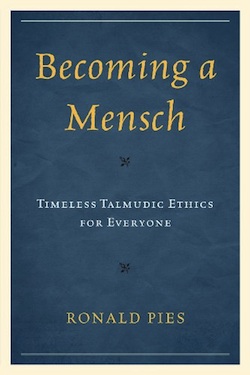Here’s an appropriate post for New Year’s Eve!
How to organize your life!
So that everything that happens in 2011 will fit into a nice, neat category.
Sort of.
 My only resolution this year is to become more organized in the way I work and live so that work and life are less on my mind during the times that I’m supposed to be chilling with the kids or hanging with friends.
My only resolution this year is to become more organized in the way I work and live so that work and life are less on my mind during the times that I’m supposed to be chilling with the kids or hanging with friends.
I hereby declare that I am guilty of the perspective of just getting through something to get to the other side, where things will be peaceful. I’m constantly wishing for a date in the nearby future, where the specific problems and complications of today won’t be there.
But that attitude robs me of so many teaching moments of today.
Thus, next year, I am going to try my best to be as organized as I can so that all the “stuff” around me, reminding me of uncompleted tasks, to-do’s, and unresolved issues won’t be interrupting my thinking process as I try to tackle the activity in front of me.
Russell Bishop, Senior Editor at Large at the Huffington Post, and seasoned self-development consultant, has just published a very helpful book in terms of categorizing and sorting and maneuvering your life in such a way that you spend fewer moments overwhelmed. His compilation of wise and insightful advice, “Workarounds That Work: How to Conquer Anything that Stands in Your Way at Work,” is a map to navigate the complex terrain at work, and a manual for frustrating processes of life in general.
The book has been very helpful for me in committing to a strategy to process and sort email (all 67,000 in my inbox!), my calendar (basketball practice cancelled first week of February), tasks (the birthday gift I need to buy by tomorrow for my daughter’s friend and the reminder to transfer medical records from Doctor X to Doctor Y) plus all the general sorting and organization I do in the car, in the grocery line, and everywhere else because I am very aware that this stuff makes me feel more out of control than I really am.
For me, Russell’s book is more about processing thoughts, in general, than it is about organizing my desk, which is why I have high hopes that it can direct me toward a little of the peace of mind that I am pursuing in 2011.

For example, in his introduction, he writes:
In just about any situation, the first question to ask is: “What could I do that would make a difference that requires no one’s permission other than my own?” As you will see, this simple but powerful question may be all that is required to move from roadblock to effective, productive action. To be sure, you may well need to enlist others in the process, but the first workaround may be merely the mental shift that says, “I can do something about this on my own.” Maybe you won’t get everything done on your own, but starting with your own approach to the problem may help get things unstuck.
Russell, a close colleague and friend of David Allen’s, takes a similar stance as one of Allen’s co-workers who presented at a workshop I recently attended. She was going over the different kinds of responses appropriate to a task: you delegate, defer, ditch, etc. In essence, YOU DO SOMETHING ABOUT IT.
So I raised my hand and asked, “I get it. It’s always good to get a task off of your desk and filed into the right category. But what if something that is weighing on your mind can’t be easily solved? What if there is nothing that you can do about it? Then what do you do?”
“There is always something you can do about it,” she said. “You wouldn’t be worrying about it if there was nothing you could do about it.” The room broke out into a dialogue and the feely-touchy types argued the case of emotions for the sake of emotions, while the analytical bunch echoed the presenter’s words: Do Something About It!
Then she gave this analogy.
She, herself, is very concerned about all the dogs that are abandoned. Every time she sees an abandoned dog, her heart aches. She wants to do something about all the dogs that are abandoned in this world. But she can’t. She is one woman. So finally she assessed how many dogs she could adopt within reason (without being called an animal hoarder). Four dogs. That’s how many she could manage. So she adopted four dogs, at which point her husband said, “No more.”
In recovery circles, we would call this practicing the Serenity Prayer: looking a problem squarely in the eye, analyzing what we can actually do about it, considering what we can’t, widening the gap between those two categories, and then … here comes Russell’s favorite part: DOING IT!
That’s my New Year’s plans: to get more organized so that I can come up with more workarounds (which, according to Russell, is defined as “a method for accomplishing a task or goal when the normal process or method isn’t producing the desired results”) that help me work around the problems, frustrations, complexities in my life that make me less excited to get up in the morning.
Check out Russell Bishop’s book on Amazon. Official pub date is January 10!
And a very happy, peaceful, calm, productive, wonderful 2011 to all of you!
* Click here to subscribe to Beyond Blue and click here to follow Therese on Twitter and click here to join Group Beyond Blue, a depression support group. Now stop clicking.

